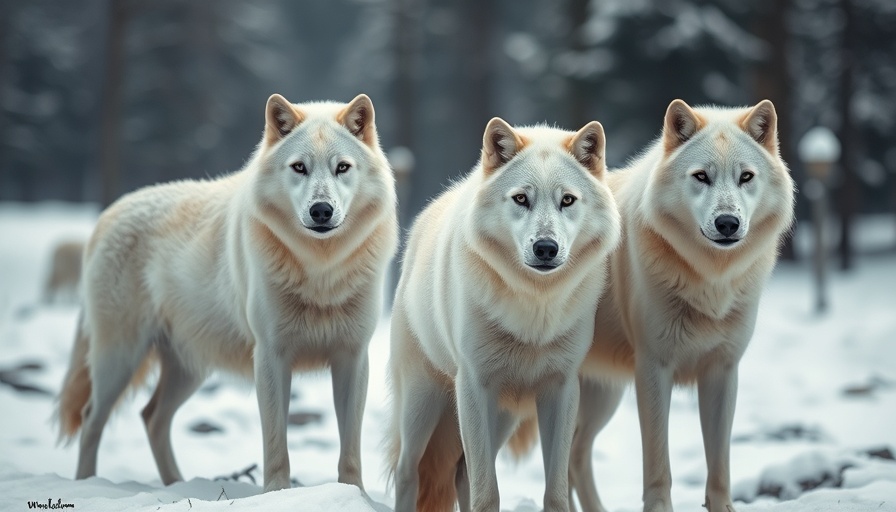
Reviving the Past: The Ambitious Quest of Colossal Biosciences
The field of biotechnology is witnessing extraordinary advancements, one of which is the de-extinction initiative led by Colossal Biosciences. Following claims of resurrecting the long-extinct dire wolf, the implications stretch beyond mere scientific novelty; they touch upon crucial ethical and ecological considerations. Colossal, dubbed a pioneer in this niche field, stated that the birth of wolf pups Romulus and Remus represents a significant stride toward their audacious mission of generative recovery of lost species.
From Grey Wolves to Dire Wolves: The Science Behind De-Extinction
Using sophisticated CRISPR technology, scientists at Colossal managed to manipulate the DNA of grey wolves to evoke the key traits of dire wolves, which had disappeared over 10,000 years ago. What’s remarkable is that the de-extinction process is not about producing identical replicas of ancient species; instead, it aims to engineer organisms that could thrive in today's environment plagued by climate change. Such endeavors not only push the envelope of genetics but also invoke questions about ecological balance and the potential disturbances resurrected species could introduce into contemporary ecosystems.
The Broader Implications of De-Extinction Initiatives
While the conceptual excitement surrounding projects like Colossal's is palpable, skepticism persists among some scientists. Are we prepared to handle the reintroduction of species that vanished due to historical ecological imbalances? The ongoing discourse surrounding de-extinction challenges researchers and policymakers to ponder whether this path is ethically sound and ecologically feasible. As climate change threatens countless species, the predicament remains whether we should focus on reviving lost species or better protecting existing ones.
A New Era of Biodiversity Management
Ultimately, the journey of Colossal Biosciences is only beginning. It serves as a striking reminder of humanity’s desire to reclaim lost biodiversity while grappling with the potential ramifications of such bold scientific endeavors. As advancements in gene editing continue to develop, the conversation around species resurrection will likely expand. Stakeholders must prioritize responsible practices, balancing innovation with conservation efforts to secure a sustainable future.
 Add Row
Add Row  Add
Add 




Write A Comment